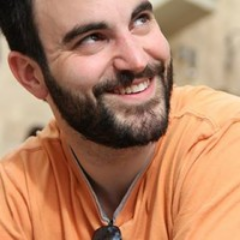
Volkswagen has flipped the switch on a gigantic new solar park that will help power its ultra-green Diesel Passat factory in Chattanooga, Tenn.
The park is the largest solar installation ever built in Tennessee. A veritable ocean of solar modules – 33,600 in all – occupy 33 acres and produce enough electricity to power 1,200 homes each year.
"We are proud to power up the biggest solar park of any car manufacturer in North America today," said Frank Fischer, CEO and Chairman of Volkswagen's Chattanooga operations.
The new solar system will provide 12.5 percent of the energy needs for the factory, which in late 2011 became the world's first factory to earn LEED Platinum Certification and has been called "the world's greenest auto plant" by the U.S. Green Building Council.
"Powering up the solar park also validates the awarding of the LEED Platinum certificate to Volkswagen Chattanooga, which is still the only car factory in the world that has earned such an honor,” added Fischer.
Touring the 1.5 million-square foot facility, one could be forgiven for thinking that Volkswagen spared absolutely no expense in its effort to build the world's most sustainable car factory.
A case in point: When you flush a toilet in the bathroom on the factory floor, it's rainwater you're seeing go down the drain. That rainwater was collected on the roof of the factory and is also used to cool the welding machines. The water is pumped by gravity, saving electricity, and the bathroom itself doubles as a tornado shelter.
And that's just the beginning.
The forklifts and carts are plug-in electric vehicles; the tile is made from recycled post-consumer waste; the exterior is lit by energy-efficient LED lights that have a relatively benign effect on local wildlife; the land on which the factory rests also houses EPA-protected marshland that provides a habitat for 17 confirmed bird species; the plant itself was built on brownfield land that was revitalized after being used to manufacture TNT; and so on.
In bringing manufacturing back to the United States, Volkswagen has cut down on the energy needed to ship its cars to the U.S. market. In Chattanooga, Volkswagen found a U.S. city that apparently holds sustainability in as high regard as the automaker itself.
Carsten Krebs, Director of Communications for Volkswagen Group of America, said that the short list for building sites came down to Huntingdon, Tenn., Detroit, and Chattanooga. Ultimately, the enthusiasm with which city officials embraced Volkswagen's sustainability agenda tipped the scales in Chattanooga's favor.
Chattanooga, which, like many other blue-collar American cities, suffered from economic depression and depopulation as industry fled to cheaper foreign markets in the 1970s and 80s, has embarked upon an ambitious effort to revitalize its economy with sustainability as a core strategy.
Downtown Chattanooga is peppered with symbols of its sustainable urban development plan. A five-minute stroll down Broad St. brings a pedestrian past an electric vehicle charging station (complete with a Chevy Volt parked beside it) and a row of bicycles available as part of the city's new bike-share program.
Mayor Ron Littlefield said he and his colleagues "have been enthusiastic" about Volkswagen's involvement in Chattanooga because the company "represents so many qualities that have helped Chattanooga become a leading city in the industrial economy.”
Acknowledging that Chattanooga once earned the dubious distinction of America's dirtiest city in the late 1960s, Littlefield said that Volkswagen's vision of sustainable industrial production dovetailed with his own.
"We've come a long way," said Littlefield, "and Volkswagen is... the crowning glory of Chattanooga's resurrection from its industrial past."
Full disclosure: travel to the factory was covered by Volkswagon; opinions are my own.

Harry Stevens is a freelance reporter covering climate change, corporate social responsibility, social enterprise, and sustainable finance. Harry has contributed to several media outlets, including Justmeans, GreenBiz, TriplePundit, and Sustainablog. You can follow Harry on Twitter: @Harry_Stevens














